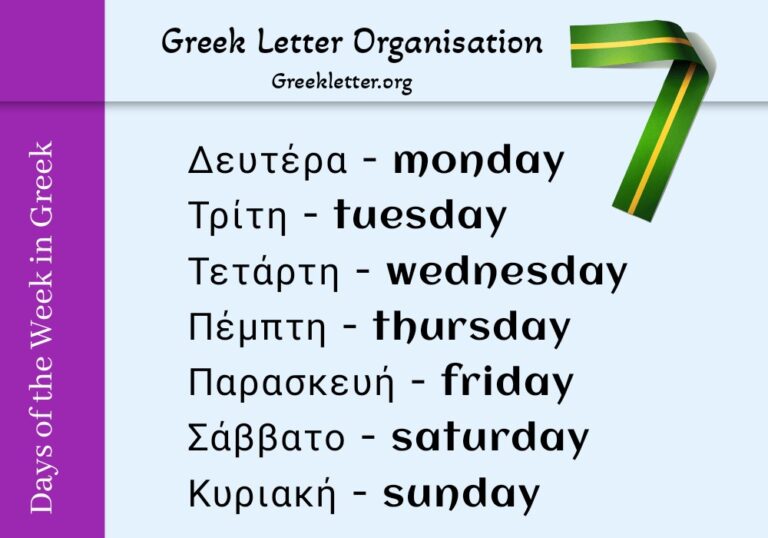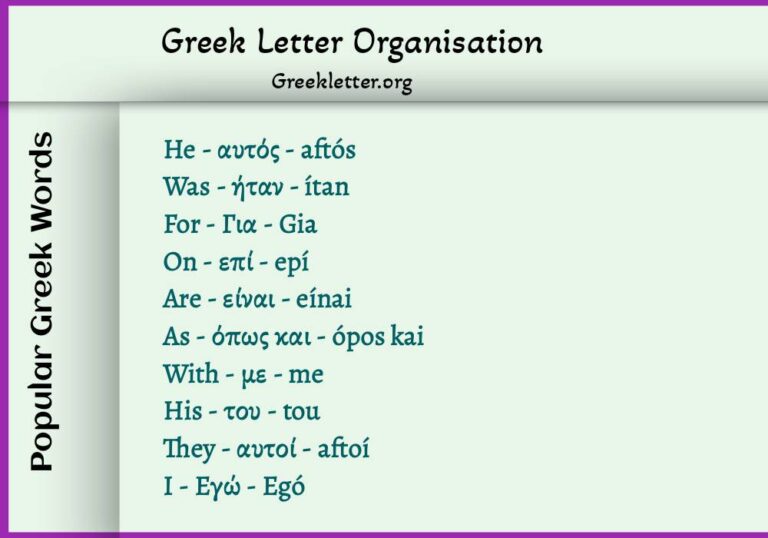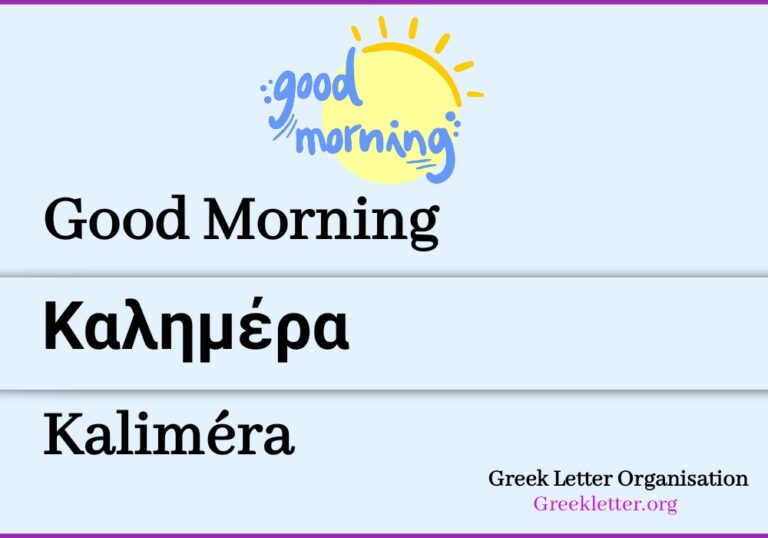How To Say Yes Please In Greek Pronunciation
If you find yourself in the beautiful country of Greece, it’s essential to familiarize yourself with some basic Greek phrases. And what better way to start than with one of the most important words: Yes.
Saying yes is a polite gesture and a way to communicate your agreement or acceptance. This article will guide you through various ways of saying yes in Greek, including pronunciation, written forms, and even audio examples.
So whether you’re planning a trip to Greece or simply interested in learning a new language, get ready to say yes like a true Greek!
How To Say Yes Please In Greek
In Greek, to say “Yes, please,” you can use the phrase “Ναι, παρακαλώ” (Nai, parakaló). Here’s a detailed explanation:
Ναι (Nai) – This word means “Yes” in Greek. It’s a straightforward and commonly used affirmative response.
Παρακαλώ (Parakaló) – This word means “please” in Greek. It’s used to make a polite request or to show courtesy.
So, when you combine “Ναι” (Nai) with “Παρακαλώ” (Parakaló), you get the polite and gracious expression “Ναι, παρακαλώ,” which means “Yes, please.” It’s used when you want to affirm something and be polite simultaneously, such as when accepting an offer or responding to a request.
How To Say Yes Please In Greek Pronunciation
To say “Yes, please” in Greek, you can use the phrase “Ναι, παρακαλώ” (Nai, parakaló).
Ναι (Nai): This word means “Yes” in Greek and is a straightforward affirmative response, similar to saying “yes” in English.
Παρακαλώ (Parakaló): This word means “please” in Greek and is used to make requests politely or to show courtesy. It’s akin to the polite use of “please” in English.
When you combine “Ναι” (Nai) with “Παρακαλώ” (Parakaló), you get the phrase “Ναι, παρακαλώ” (Nai, parakaló), which is a polite and gracious way to respond positively while also showing politeness and courtesy. You might use this phrase when accepting an offer, responding to a request, or indicating that you would like something with courtesy.
How To Say Yes Please In Greek Letters
To write “Yes, please” in Greek letters, you would use the following Greek words:
- Ναι (Nai) – This means “Yes” in Greek and is written as “Ναι” in Greek letters.
- Παρακαλώ (Parakaló) – This means “please” in Greek and is written as “Παρακαλώ” in Greek letters.
So, to write “Yes, please” in Greek, it would look like this:
Ναι, παρακαλώ
These Greek letters represent the phrase “Yes, please” in Greek.
How To Say Yes Please In Greek Audio
Listen to the audio below to learn how to say Yes and please in Greek! Saying yes please is a polite way to accept an offer or request, and it’s always helpful to know some basic phrases when traveling abroad. In Greek, the phrase for yes please is pronounced neh, parakalo.
When spoken with a friendly tone, this expression conveys politeness and gratitude. It’s a versatile phrase that can be used in various situations, such as accepting a drink at a café or agreeing to try a local dish. So next time you find yourself in Greece and want to show good manners, remember to say neh, parakalo!
Learning simple phrases like these can greatly enhance your travel experience by allowing you to communicate more effectively with locals. It shows respect for the country and its culture while paving the way for meaningful interactions. So why not practice saying neh, parakalo before your next trip?
How Do You Say Yes In Greek
In Greek, the word for “Yes” is “Ναι” (Nai). Here’s a more detailed explanation:
Ναι (Nai):
- Pronunciation: “neh”
- Meaning: This is the equivalent of “Yes” in English. It is a straightforward and commonly used affirmative response in Greek.
- Usage: You can use “Ναι” to affirm or agree with a statement or to answer “yes” to a question. It’s a simple and direct way to express agreement or consent.
Whether you’re confirming something, agreeing with someone, or responding positively to a question, “Ναι” is the word you would use to say “Yes” in Greek.
Greek Greetings: The Ultimate Word Bank
Here’s a comprehensive list of Greek greetings, both formal and informal, along with their English translations:
Formal Greetings:
- Χαίρετε (Chaírete) – Hello (formal, polite)
- Γειά σας (Geiá sas) – Hello (formal, polite)
- Γειά σας κύριε/κυρία (Geiá sas kýrie/kiría) – Hello, sir/madam (very formal)
- Informal Greetings:
- Γειά σου (Geiá sou) – Hi, Hello (informal, friendly)
- Γειά σας όλοι (Geiá sas óloi) – Hello, everyone (formal)
- Γεια σας παιδιά (Geia sas paidia) – Hello, kids (informal)
Time-of-Day Greetings:
- Καλημέρα (Kaliméra) – Good morning
- Καλησπέρα (Kalispéra) – Good evening
- Καληνύχτα (Kaliníkhta) – Good night
- Καλό πρωί (Kaló proí) – Good day
- Καλό απόγευμα (Kaló apógevma) – Good afternoon
Other Common Greetings:
- Χαιρετίσματα (Chairetísmata) – Greetings
- Γειά σου/σας, τι κάνεις/κάνετε; (Geiá sou/sas, ti káneis/kánete?) – Hi/Hello, how are you? (informal/formal)
- Πώς είστε; (Pós eíste?) – How are you? (formal)
- Πώς πάει; (Pós páei?) – How is it going?
Special Occasions and Expressions:
- Καλή επιτυχία (Kalí epitychía) – Good luck
- Χαρά σας γνωρίζω (Chará sas gnorízo) – Nice to meet you (formal)
- Καλή ημέρα (Kalí iméra) – Have a nice day
- Καλή σας όρεξη (Kalí sas órexi) – Enjoy your meal (formal)
These Greek greetings cover a range of formalities and are used in various situations. You can choose the appropriate one based on the context and your relationship with the person you are addressing.
Conclusion Points
In conclusion, learning to say yes in Greek can be valuable for anyone visiting or living in Greece. By understanding the pronunciation and letters used to express this phrase, you can effectively communicate your desires and show politeness in various situations.
Utilizing audio resources can greatly enhance your learning experience and help you grasp the correct intonation and rhythm. So, whether you are ordering food at a restaurant or asking for assistance from a local, knowing how to say yes in Greek will make your interactions smoother and more enjoyable. Start practicing today and embrace the beauty of the Greek language!
FAQs
1. How do you say yes, please, in Greek?
In Greek, yes, please is said as nai parakalo.
2. How do you pronounce yes, please, in Greek?
The pronunciation of nai parakalo in Greek is [ne: para’kalo].
3. How is yes, please written in Greek letters?
In Greek letters, yes, please is written as ναι παρακαλώ.
4. Is there an audio example for saying yes, please, in Greek?
An audio example of saying nai parakalo can be found on the website.
5. Can you provide other ways to say yes politely in Greek?
Certainly! Other polite ways to say yes in Greek include phrases like naíste̱, which means certainly, and símpathe̱tika, which means with pleasure.
6. What are some informal ways to say yes in Greek?
Some informal ways to say yes in Greek include using the word ne or simply nodding your head.
7. Are there any regional variations in Greek for saying yes, please?
While the phrase remains consistent across Greece for saying yes please, minor regional variations may exist regarding accent or intonation.
8. Can I use the phrase ‘nai parakalo’ for various situations when I want to accept something politely?
Absolutely! The phrase ‘nai parakalo’ can be used when you want to accept something politely or respond with gratitude and politeness.






